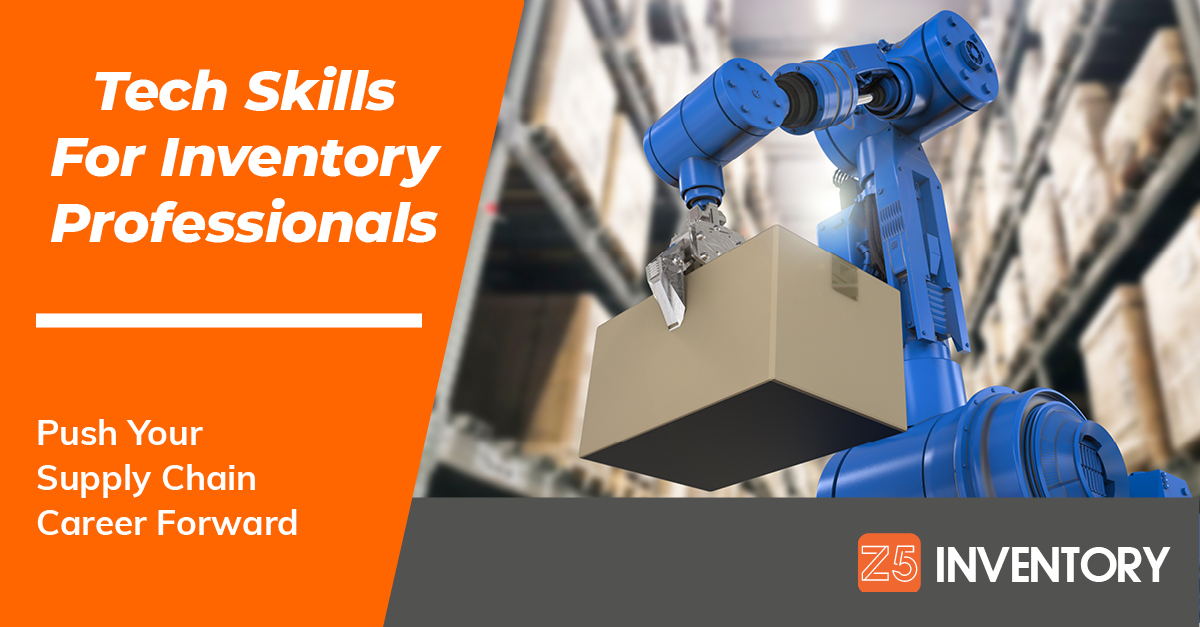How To Learn the Tech Skills Supply Chain Managers Need

We get that the struggle right now is just to keep your head above water. But that can easily turn into treading water.
So, in the name of keeping your competitive edge sharp and mixing metaphors, we partnered with Career Karma to put together this overview of a few technologies you should be embracing in your everyday duties. Implementing them will not only help you stay competitive where you are, but improve your chances when you’re hunting for a better salary, better title, or better job entirely.
(Although keep in mind that we do all the heavy lifting with implementing advanced tech & analytics whether you're partnering with us to Count, Reallocate, or Buy. Which was the topic of discussion on this week's episode of Take 5: An Inventory Series.)
As a supply chain professional who embraces technology, you’ll master tech skills in the fields of data science, sales, and digital marketing. Such as...
Data Analytics
Data is the most valuable resource any company has, and hospitals more than ever must know how to gather it in order to succeed. For this reason, data science skills are vital for professionals at every level of the organization -- especially supply chain professionals.
It’s incumbent on supply chain managers to learn analytical skills in order to create useful, actionable insights into the ordering and usage of supplies. It’s incumbent on financial professionals to interpret data to make better budgeting decisions. It’s incumbent on every manager or supervisor of any kind to analyze their performance and the performance of their department.
If you’re ready to start improving your data skills, resources like Springboard’s bootcamps are a great place to start. The courses empower you to learn while you work.
Machine Learning
For supply chain managers, predicting future demands is crucial but not what people would generally call “easy.” In healthcare’s supply chain, the right prediction means a right-sized inventory, and a lousy forecast means expiration and unnecessary expense.
That’s why hospitals are utilizing machine learning: to ensure the accuracy of their predictions by detecting patterns in supply chain data.
You probably already know a company that’s using machine learning in the healthcare space to help hospitals order what they need and distribute what they don’t need to destinations that will provide the biggest savings. (Hint: you’re on their blog right now.)
Machine learning skills are essential to stay ahead of the competition. Thinkful offers machine learning courses with enough flexibility that they don’t overwhelm your already busy (insane) schedule.
A Mobile Way of Thinking
It’s not really a surprise that the makers of the Z5 Inventory iOS and Android apps are big fans of mobile device use.
With the use of IoT devices, supply chain managers can track the location of a product at any time, especially in warehouses.
Mobile apps allow supply chain managers to track and predict shipments to and from their facilities, which results in manufacturers, suppliers, and distributors having increased interconnectedness and visibility.
And, of course, when you’re on a count or reallocation, mobility is everything. You don’t want to be juggling paper count sheets or a laptop when you’re having to count individual syringes on a clinical shelf. More mobile means less hassle.
As unique as we like to think ourselves to be, healthcare supply chain managers and finance pros are like employees in every other field. We must adapt in order to survive.
